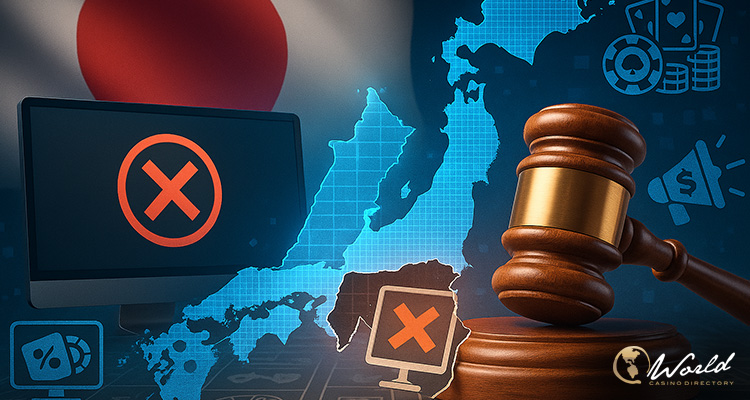Japanese law enforcement has arrested a 38-year-old man in what is being called the largest individual online gambling case in the country’s history. The suspect, Makoto Chomabayashi, is accused of placing bets totaling 28 billion yen (approximately $194 million) through an international gambling website, far exceeding previous records for individual wagering activity in Japan.
Chomabayashi, a company employee based in Iwaki, Fukushima Prefecture, allegedly participated in extensive illegal gambling using the crypto-friendly online casino platform Stake, with activity dating back to August 2022 and continuing until April 2025. Authorities say that he personally wagered at least 90 million yen ($625,500), mostly on games such as baccarat.
Despite the enormous sums involved, investigators estimate he incurred net losses of around 40 million yen, or roughly $277,000, during the period in question.
Suspect Promoted Casino Activity Through Social Media
In addition to gambling, police say Chomabayashi acted as an online casino affiliate, using his social media presence to draw others to the platform. Operating under the alias “Meikyo Shisui”—a phrase from Chinese philosophy that translates to “clear and serene mind”—he posted images of winning bets on the social media platform X (formerly Twitter), cultivating an image of success and excitement.
Police believe he referred more than 100 users to the casino, receiving commissions amounting to 7 million yen (approximately $48,600) since April 2023. These affiliate payments represented 2% of the bets placed by individuals who discovered the site through his posts.
The suspect allegedly admitted to these activities and was quoted telling police that he knew online gambling was illegal in Japan but assumed the chances of being prosecuted were low. “News reports said there were hundreds of thousands of players in Japan, so I thought I was only the tip of the iceberg,” he reportedly told investigators according to NHK.
He further confessed that receiving admiration online for his gambling wins gave him a sense of validation. According to authorities, Chomabayashi said he continued posting about his success because the praise boosted his self-esteem.
Illegal Online Gambling Draws Wider Government Attention
This high-profile arrest underscores growing concerns within Japan about the scale and impact of unregulated online gambling. A recent survey by the National Police Agency (NPA) estimated that approximately 3.7 million people in Japan have engaged with illegal online casinos, contributing to an annual total of over 1.2 trillion yen ($8.2 billion) in wagers.
Alarmingly, 40% of survey respondents said they were unaware that their gambling activities violated Japanese law.
To combat this rising trend, Japanese officials have begun tightening regulations on unauthorized gambling platforms. In March, the government announced updated measures aimed at curbing gambling addiction and cracking down on related activities, particularly those involving affiliate marketers and third-party financial intermediaries.
The Council for Sports Ecosystem Promotion also reported that Japanese users spend an estimated $44.2 billion annually on foreign-based gambling platforms, highlighting the scale of the issue nationwide.
This case further illustrates how individuals acting as affiliates—like Chomabayashi—can become central figures in illegal gambling operations, both as consumers and as promoters.
Record-Breaking Wagers Spark Law Enforcement Alarm
According to Tokyo police, the total amount wagered by Chomabayashi—28 billion yen—is unprecedented for a single person in Japan. If verified, it would mark the largest sum ever associated with an individual in an illegal gambling investigation in the country.
Police say Chomabayashi has cooperated with the investigation and confirmed the allegations. He reportedly said he understood the risks but underestimated the likelihood of law enforcement action.
The NPA stated that arrests related to online casino activity surged in 2024, with 279 people detained, reflecting a 160% increase compared to the previous year. These figures indicate an increasingly aggressive approach from authorities seeking to address the rapidly growing problem of digital gambling.


